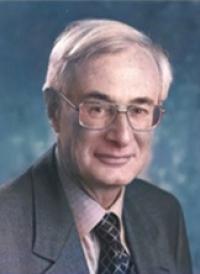Obituary: Dr Howard Cattle

Dr Howard Cattle
We are saddened to hear of the passing away of Dr Howard Cattle, Director of the International CLIVAR Project Office (ICPO) from 2002 to 2010 while it was at the National Oceanography Centre, Southampton, UK.
Howard succeeded John Gould in August 2002, as the fourth director of the ICPO, around the time when the World Ocean Circulation Experiment (WOCE) programme was coming to an end. One of the major CLIVAR events under Howard’s responsibility was the very first International CLIVAR Science Conference held in Baltimore USA (June 21-25, 2004). The conference was a huge success with 640 registered attendees from 56 countries, providing a comprehensive overview of progress in CLIVAR science over the past 5 years.
Howard’s success at the ICPO is highlighted by the account of his successor Dr Robert Molinari during the Director transition (CLIVAR Exchanges 15, No.4, July 2010): Howard has established a level of professionalism that will be difficult (more likely impossible) to achieve… Howard’s continued involvement in CLIVAR extended beyond his original retirement date of 31 March 2010 and is a measure of his dedication to the program.
On CLIVAR and the World Climate Research Programme (WCRP), Dr Valery Detemmerman (ICPO Director 2014-2017) adds: "From a WCRP perspective, Howard worked diligently to connect CLIVAR to the broader WCRP community. Sometimes he referred to this as "herding cats", an activity that his Coon cat-breeding household had made him an expert in."
We are indebted to Howard for his hard work as ICPO director during his term, contributing to the success of CLIVAR for the many years that followed.
Prior to taking up the position at ICPO, Dr Howard Cattle had a long and decorated career at the UK Met Office. He joined the Met Office in 1973 as a Senior Scientific Officer working in forecasting research, developing methods for 4-D data assimilation, and was then promoted to Principal Scientific Officer (1975) working on physical parameterisations. In 1976, he became Deputy Principal of the Met Office College that trained new graduate entrants, and was transferred to the Dynamical Climatology Branch in 1980 to head a new research group on modelling of the oceans and sea ice. He was involved in establishing the Hadley Centre for Climate Prediction and Research and in 1996 he became the Met Office’s Head of Ocean Applications responsible for the Met Office’s programme in ocean modelling for short term ocean forecasting, seasonal forecasting and climate prediction. He received his BSc in physics, University of London 1967, and a PhD in Meteorology, Imperial College 1971 (CLIVAR Exchanges 24, June 2002). He was the President of the Royal Meteorological Society from 2002 to 2004.
Our thoughts are with his family and many friends.
WCRP CLIVAR International Project Office











Add new comment